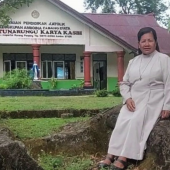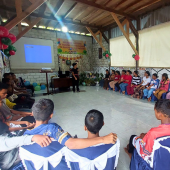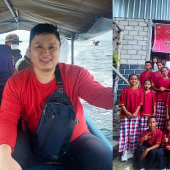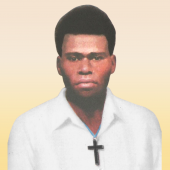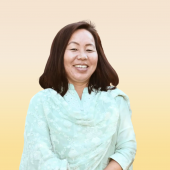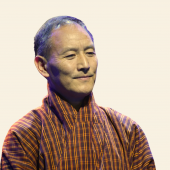Indonesian Catholic teaches English, shares life, faith
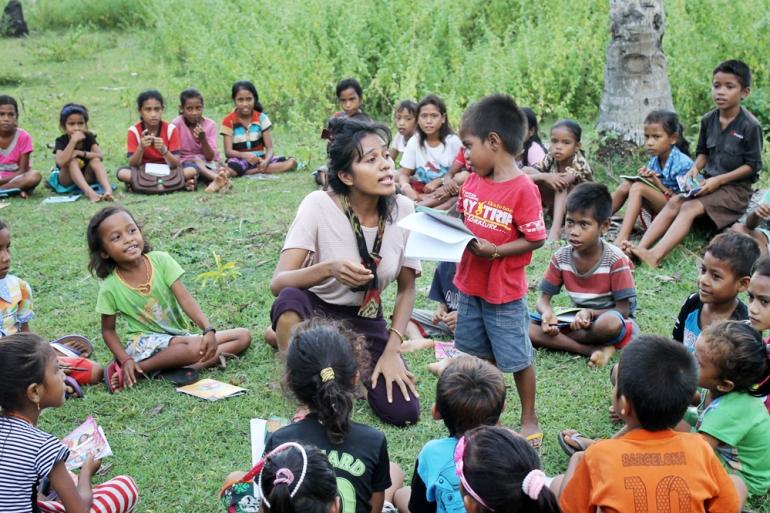
Roswita Asti Kulla, 29, does not only teach English to children and the youth in her community in Indonesia’s East Nusa Tenggara province. She lives her life as an example, an inspiration, for others how to be a good Christian.
Asti, as she is known, is the fourth of six siblings from a Catholic farming family in Lambayo District, West Sumba. Through her parents’ sacrifices, she was able to go to school and finish her education.
She mastered and finished her English education from Kanjuruhan University in Malang, East Java, in 2014.
After her studies, she went back to her hometown and worked as a contractual teacher at a government high school.
Asti’s love for education, and her realization that many children have a difficult time pursuing formal education, moved her to share her knowledge with the community.
She started her English teaching program as a personal project after seeing how learning English would help residents and children who sell local products to tourists.
The island of Sumba is one of the famous tourist attractions in Indonesia. It is best known for surfing and horseback riding festivals.
The tourism potential of the island is high because it lies at the eastern end of a chain of Indonesian island gems an hour's flight from Denpasar, Bali.
“I saw how children and parents offer their local products with their very minimal knowledge of English,” said Asti. "I ask myself, why don't I share the knowledge I have with them," she said.
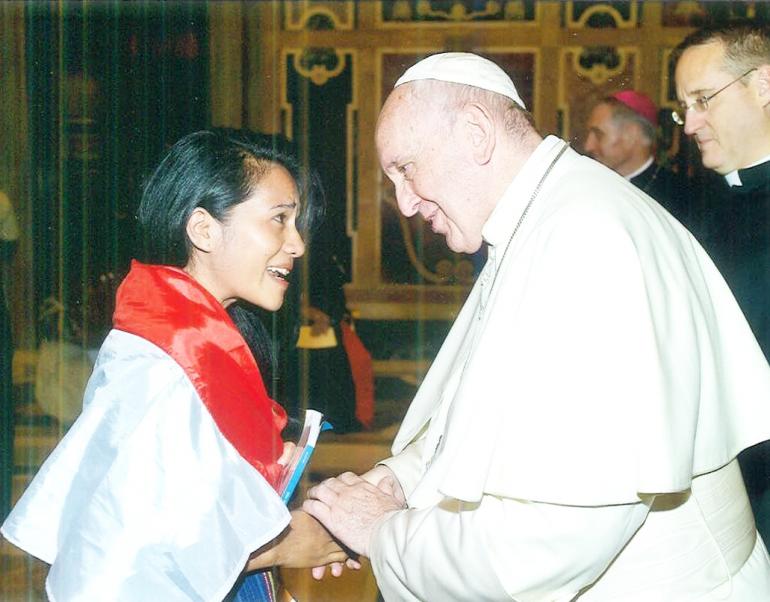
In 2015, Asti started teaching English to children by the beach. With the help of friends, she later promoted her program through social media.
It did not take long for the community to learn about her work. They wanted her to expand the project to hinterland villages.
"There were about 100 volunteers from all over Sumba," said Asti, who was invited to attend the 2019 Change Makers for a Better World program in Singapore.
In 2019, she was also part of the Indonesian delegation to the International Youth Forum in Rome.
About 1,000 children have already benefited from her program. Her English Goes to Kampung (EGK) Foundation, which she established in 2019, has now 30 learning centers.
“Kampung” Bahasa Indonesia for “small rural community.”
Many of the children and young people who are enrolled in Asti’s program are “out-of-school” youth.
Asti’s learning centers have no buildings. All learning and teaching activities are carried out in an open space. The activities are done on the beach, in front of the children’s houses, in the field, or under a tree.
“Do not expect to find buildings in our learning centers. Our school is an outdoor school,” she told Radio Veritas Asia. “We do not even have a building for our office,” she said.
There are also no permanent staff. Everyone are volunteers who have full-time jobs. They are residents from Sumba, Flores, and Java. Some are from abroad, and their professions are diverse.
"Our volunteers come from various professions, such as doctors, policemen, teachers, soldiers, nurses, bank employees, government employees, and others," said Asti.
The foundation does not provide accommodation for volunteers, thus the accommodation for those coming outside the island has become part of “volunteer tourism” trips.
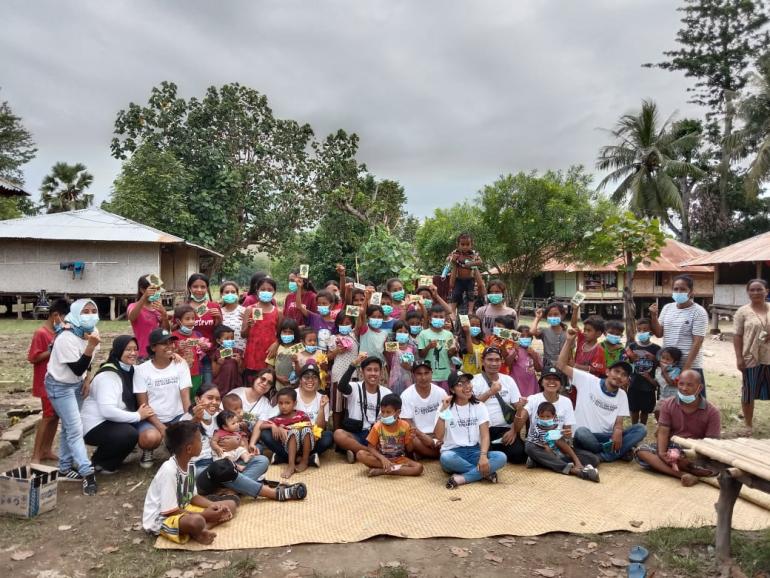
Aside from English, the foundation also teaches good manners and care for the environment, among other self-help activities.
Children are encouraged to plant trees, clean the surroundings, and have a sense of social responsibility by helping victims of natural disasters.
As part of its program, the foundation provides scholarships to students who take undergraduate education and some high school students.
"Our fund is limited, yet education remains an urgent thing than building an office and a learning center," said Asti.
“When we educate children, we build and empower human resources, and in the end, they can construct many buildings," she said.
Financial support for EGK comes from personal donations of friends, relatives and volunteers.
Most of the funds are used for the educational expenses of children because the volunteers work for free.
Asti said the biggest challenge they face during the pandemic is the restriction on face-to-face activities with the children.
“Over the years, we have built a pattern of discipline, enthusiasm for learning and fostering self-confidence in every child,” she said.
"With the pandemic, we are restricted to do learning activities. We are afraid that this pattern will change and we have to start from zero again," said Asti.
Still, the young Catholic is grateful that her faith continues to inspire her, that the Church is supportive, and other young Catholics from her parish are volunteering.
“I believe God wants to use me as I grow,” she said. “What I do now is not merely because of my strength, but is because of the guidance of the Holy Spirit,” she said.
“I admire Jesus. He is my role model in this ministry,” said Asti.
She expressed hope that young Catholics in her country will be brave to work and take risks “because each of us is given a talent by God and has great potential.”
She also loves to remind young people that as Christians, “we all have the best role model, Jesus, who is ready to guide our path.” - Emiliana Saptaningsih / RVA News
Radio Veritas Asia (RVA), a media platform of the Catholic Church, aims to share Christ. RVA started in 1969 as a continental Catholic radio station to serve Asian countries in their respective local language, thus earning the tag “the Voice of Asian Christianity.” Responding to the emerging context, RVA embraced media platforms to connect with the global Asian audience via its 21 language websites and various social media platforms.









